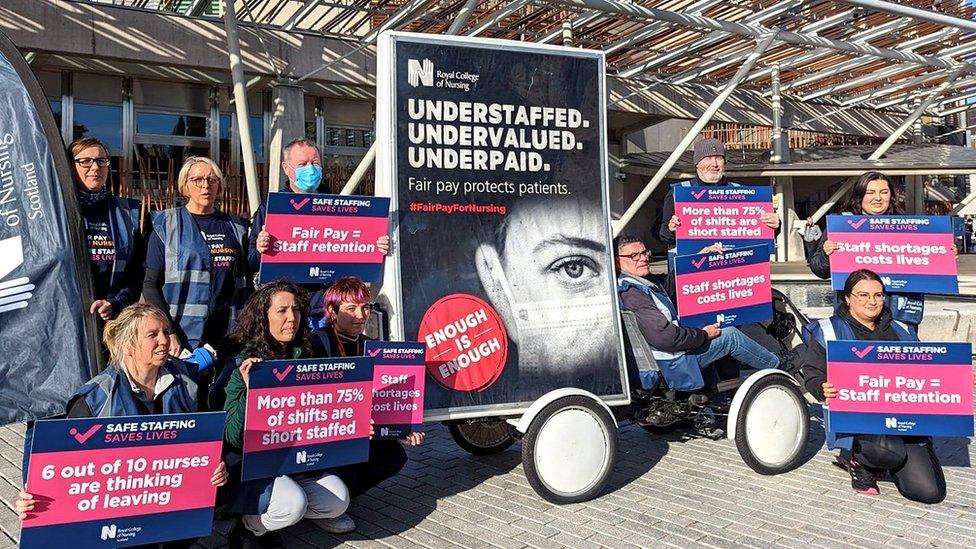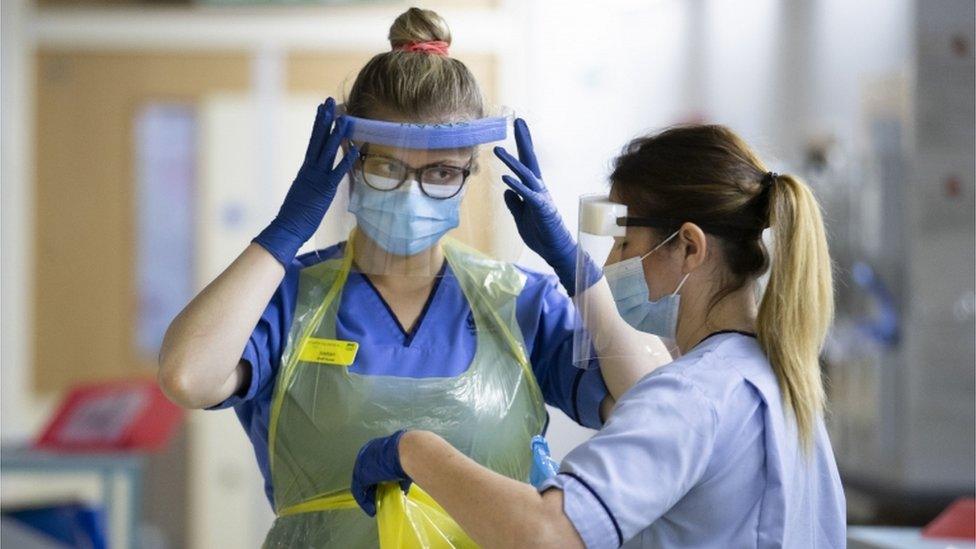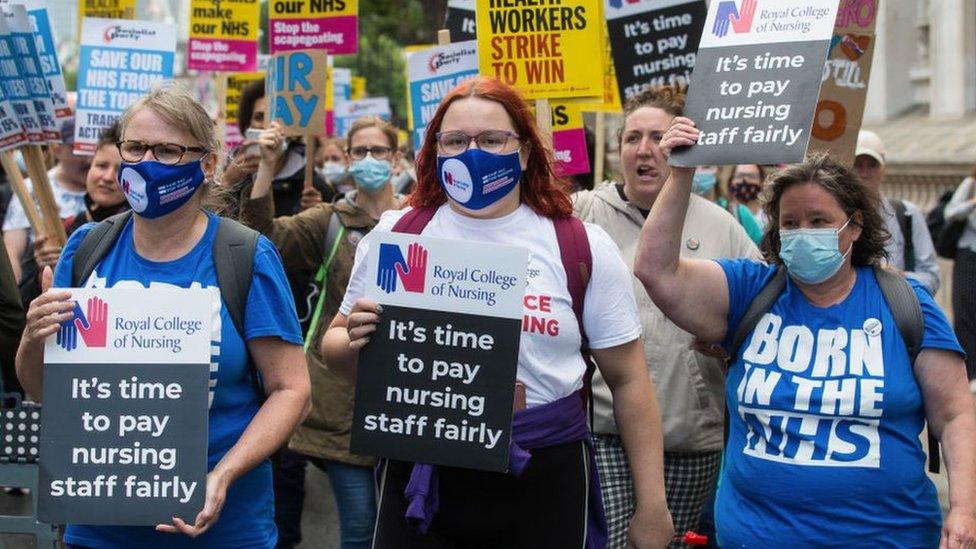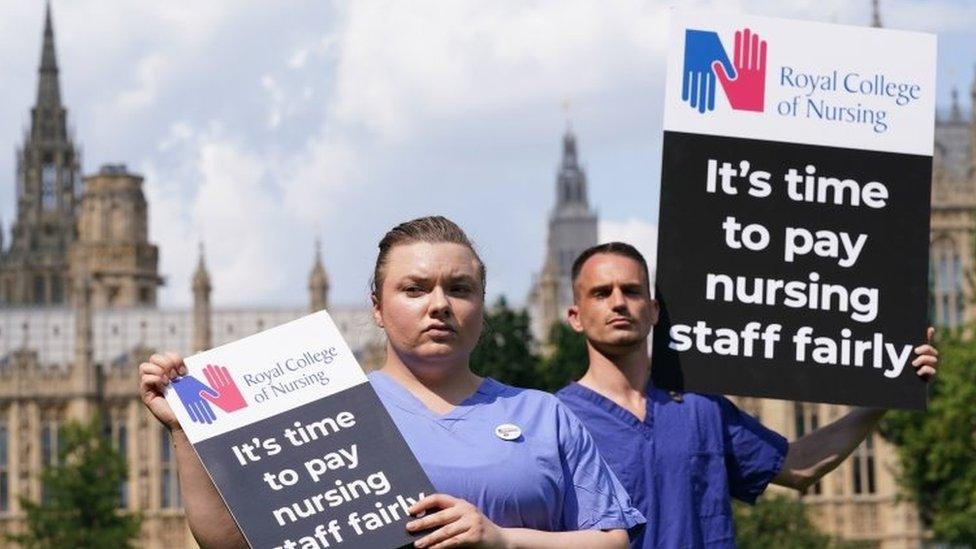Humza Yousaf warns strike action 'catastrophic' for Scotland's health service
- Published

Staff have been protesting and calling for a better pay deal to avert the first ever UK-wide strike action by nurses
Scotland's health secretary has warned strike action by nurses would be "catastrophic" for the NHS.
Humza Yousaf said the industrial action backed by the country's largest nursing union was not inevitable and he wanted further talks on a new pay deal.
Mr Yousaf suggested there was scope to redistribute the existing £480m budget for NHS pay rises, but that no extra funding was available.
Strike action is expected to start by the end of the year.
Members of the Royal College of Nursing (RCN) in Scotland have followed a number of other health unions in rejecting the Scottish government's revised pay offer.
The RCN has said talks with health boards about deploying nurses in life-preserving services such as intensive care during any strike action are under way.
Speaking on BBC Good Morning Scotland , Mr Yousaf said there was a "route through this" and that "strikes are not inevitable".
He added: "There will be continued dialogue, there will be continued negotiation with all the trade unions.
"What we can do is look at the £480m envelope and say well is there another way that could be distributed.
"If the concern is coming from, for example, experienced nurses then is there something else we can do to redistribute that."
On the impact of the strikes, Mr Yousaf said: "I've got to be frank with you, even with all the contingency we can muster I think a strike will be harmful and I think it would catastrophic at this time more than any other time."
Mr Yousaf also said there was a "moral obligation" on the UK government, who he said had created many of the cost of living pressures being felt by NHS workers, to provide more funding.

The most recent Scottish government pay offer was for a flat rate of £2,205 per person, backdated to April.
The government says this is the biggest offer of its kind since devolution, representing an average salary increase of 7%, with the lowest paid gaining more than 11% and qualified nursing staff receiving up to 8.45%.
The RCN has described the deal as a real-terms pay cut and accused the government of not listening to staff concerns. It asked for at least 5% above inflation, which rose to 10.1% in September.
'Enough is enough'
RCN steward Hilary Nelson, who worked in an intensive care unit for 28 years, said the industrial action was about pay and safe staffing levels.
She told BBC Scotland: "It is really difficult just now for nursing and those difficulties have emerged over many years.
"When nurses are coming to work of an evening or morning they already know they are short-staffed.
"Whilst industrial action will be disruptive, we will do it safely, we will do it in a considered way and we will make sure we deliver our message to the government that enough is enough.
"If you do right by the nurses, you will do right by the patients."
Members of the GMB and Unite unions, as well as the Chartered Society of Physiotherapy, have also recently backed strike action.
But Unison, Scotland's largest health union, has suspended its strike ballot of NHS staff and is consulting its members on a revised pay offer until 14 November.
Once the result of this consultation is known then there will be more clarity on when any industrial action will take place as it is expected the trade unions will coordinate strikes.
- Published9 November 2022

- Published10 November 2022

- Published2 May 2023
